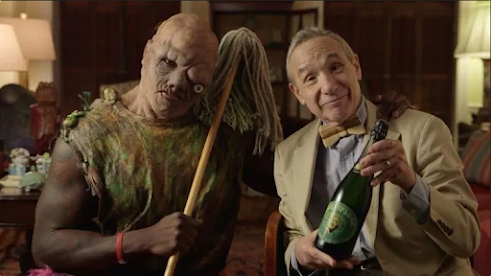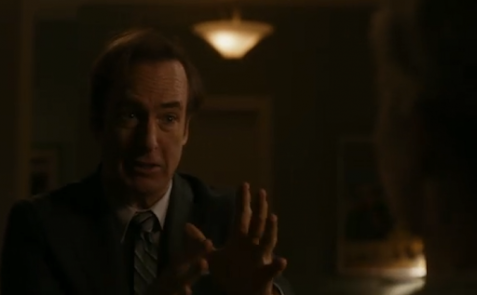Fixed Perspectives
As I write this, the Kickstarter campaign containing my Resident Evil book is nearing 350% funded. That’s astonishing; thank you from the bottom of my heart. If you haven’t pledged yet, please consider doing so. You’ll be supporting a great publisher and great writers.
(I’m also pitching in an additional stretch goal for hitting 350%, so if you pledge now, you can make that happen yourself!)
I didn’t expect the campaign to get funded so quickly, so I guess I’d better start actually posting some of the behind-the-pages stuff I’ve been meaning to.
To start with, I wanted to spotlight a few of the experts I brought in who allowed me to provide a much larger view (and achieve a deeper understanding) of the material.
I’m one person. I can perform my own research and provide my own interpretations, but there’s only so much I can show you from my own fixed angle. Getting some additional voices involved would enrich and enhance the book substantially.
And, y’know, it would also give me an excuse to work with some really cool people.
The headliner here was Lloyd Kaufman, head honcho of Troma Entertainment and perhaps the elder statesman of excess.
I wasn’t sure how much interest Kaufman would have in the project, but I figured it couldn’t hurt to ask. The guy is a B-movie icon, and with Resident Evil perhaps still the closest thing we have to an interactive B-movie, I hoped we could find some overlap.
We ended up with much, much more.
The guy is busy; I will say that much up front. It would not be polite to mention his age (Lloyd is 106), but he does not seem to slow down. When I approached him to see if he’d be interested in participating in some way, he heard me out. He listened attentively. He told me — with clear sincerity — that he was honored that I asked. He offered to write the foreword.
And then he disappeared.
It only seemed that way, of course. What actually happened is that Kaufman is no less busy now than he ever was. I came to him with one project, and he was interested. That was very nice, but it didn’t make a few dozen other projects that needed his attention disappear.
Right now, in early May 2020, long after the book is done, the guy just keeps going. While many others are understandably scaling back public appearances, Lloyd keeps finding ways to get himself and his work out there. Just last week he participated in the Mainframe Comic Con, an online event of exactly the kind that’s being cancelled around the world. For many, it’s a chance to stay home and slow down. For Lloyd, it’s a chance to find new ways forward.
So he was gone. I reached out a few more times and would indeed get responses, even ones that promised, “I haven’t forgotten you! Expect something soon.” And then silence again.
One of the things he was attempting to achieve was securing a venue to premiere Return to Return to Nuke ‘Em High AKA Volume 2 in Denver. I didn’t know that, and I learned about it immediately when I mentioned where I live.
He apologized for the delay once again, and asked if I could help him in return. I was, as he had put it months earlier, honored that he asked.
He said that it’s always easier when fans in certain cities reach out to venues to request bookings. Troma or other companies can approach venues as much as they like, but it’s the fans who make clear the actual demand.
I did indeed manage to secure him a venue for his film. It screened with a live Q&A from Lloyd on July 13, 2019, at Denver’s beloved Oriental Theater. Lesbian couples in attendance got a free DVD.
It only gets stranger from there, but also less relevant so I’ll summarize. While finding contacts for potential venues, I met a lot of truly wonderful, excellent people in various industries. One of them ended up becoming my realtor; she found me the house I purchased soon afterward. It’s because of a direct request from Lloyd Kaufman that I now own a home.
What an extraordinarily bizarre experience, completely befitting the inanity that put Troma on the map in the first place.
Ultimately, of course, I got a foreword from him, and it was everything I could have hoped. Thanks to the delays, I was able to get him a more-or-less complete draft of Resident Evil, which meant, y’know, he’d actually know what the book was. That ended up helping, I think.
I named the first chapter in the book after a film distributed by Troma. It was fitting, and also, I thought, a nice transition from his words into my own.
Lloyd is — seemingly daily — exactly the person I would have assumed him to be. He’s hilarious, a bit nuts, bottomlessly grateful, and full of love. None of those things surprised me, but I feel privileged to have had each of them validated firsthand by the man himself.
Thank you, Lloyd.
At one point during the course of writing, I was reminded that someone else had spent a lot of time translating Resident Evil into text: Danelle Perry, writing as S.D. Perry.
I remember seeing Perry’s novelizations at Borders and Barnes & Noble for years, but I never picked them up. Why? Well, because the games were scary enough; the last thing I wanted was to invite them deeper into my brain through a medium I turned to for comfort.
That was my loss, back then. Perry novelized the first three numbered games in the series, the prequel Resident Evil Zero and the criminally overlooked Resident Evil: Code Veronica. Her books did so well she was invited to write two original novels set in the same universe, using many of the same characters.
They were, and are, a lot of fun. The first book (The Umbrella Conspiracy) hews pretty closely to the source material, but Perry seemed to find greater freedom from there, especially in her two original stories. They’re adventure novels with moments of genuinely impressive atmosphere, and I was curious about her process. Again, it couldn’t hurt to reach out.
I ended up having a lovely conversation with her. Now largely retired and raising her two teenage sons, she spoke to me openly about many interesting things. We covered everything from her process to her inspirations to the complete lack of guidance from Capcom.
It also led to one of the most heartbreaking cuts I had to make as a writer. As the book took shape, there was less and less room for the chapter dedicated to Perry and her novelizations. It started to feel more like digression than progression. My editors had “the talk” with me. I couldn’t disagree. The chapter was gone.
…was.
With a little bit of restructuring, it now stands alone as a complimentary feature. Bonus content, if you will, which you will be able to read in Nightmare Mode, an anthology that all Boss Fight Books season five subscribers will get for free now that we’ve hit that particular stretch goal.
It’s more than a little appropriate that that feature rose from the dead, and I’m glad we were able to find a home for it when it no longer fit the flow of the book.
Did you catch it, a moment ago, when I said I couldn’t read the books because the games were scary enough? That wasn’t an exaggeration.When Resident Evil came out in 1996, I was not a fan of horror. I hated it. I didn’t like what it did to me. I didn’t like the nightmares I experienced. I didn’t like the way it rewired my brain to fear shadows and sounds and even people that, on their own, wouldn’t have been the least bit scary.
Yet, here we are. I don’t just play Resident Evil; I respect it and adore it and write hundreds of pages about it. I don’t just watch horror films willingly; I seek them out, spotlight related films each October, relish them at both their best and their glorious worst.
One thread my book follows is that evolution for me, that gradual acceptance of a genre I thought could offer me nothing other than discomfort. Here’s the thing, though: There’s only so much about the psychology behind horror that I could understand or articulate on my own.
In researching it, I found a lot of interesting articles, and one name that kept coming up was Margee Kerr, a sociologist who specializes in fear. Her name ended up all over my notes. I read interviews with her and watched her give a TED Talk. I bought her book Scream: Chilling Adventures in the Science of Fear and found it as entertaining as it was informative.
I figured I could either quietly stuff my book full of Kerr’s observations or reach out and invite her to part of the project. Again, what did I have to lose? She accepted, and we had an hours-long chat that started with Resident Evil and then plunged fascinatingly into what actually happens inside of us when we are exposed to horror media.
It was one of the most fascinating conversations I’d ever had, and I was privileged enough to have it a second time, as well. Through a good friend I met Sharnay Brown, an outpatient psychologist with a doctorate in clinical psychology. (She has fled the country since our talk. I can only assume this was unrelated.)
Between Kerr and Brown I was able to have all of my questions answered. While typing up notes from one, I prepared questions for the other. Together they painted an incredible portrait of horror’s appeal, of its chemical similarity to excitement, of the ways our bodies and brains shut down non-essential functions when experiencing fear.
They provided clinical explanations for why we seek out some scares and avoid others, why we enjoy horror more when with friends, even why horror characters tend to make the worst possible decisions at the worst possible times.
I knew I’d be able to discuss and explain what happens on the game’s side of the screen when you boot up Resident Evil, but I couldn’t have hoped to explain what happened on your side. Clearly games like that have an impact, but that wasn’t enough for me. I wanted to know what that impact was made of, specifically.
Thanks to Kerr and Brown, I was able to find out. Now readers will, too.
That’s just a quick overview of some of the people who set time aside to help me turn this book project from a potentially pretty good one into a great one. I love them all and cannot sing their praises enough. I think you will be pleased with what everybody brings to the discussion, and I’m humbled and honored to have worked with them.
Of course, these are far from the only voices you will hear in the book.
Before I even started writing, I asked myself, “Wouldn’t it be cool if I tracked down all the actors and voice actors from the game and got from them, for the first time, the complete story behind those infamous performances?”
With the book complete, I can definitively answer, “Yes. It is cool.”
We’ll talk about that next time. For now, help bring it to life.





Comments
Post a Comment